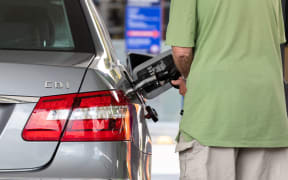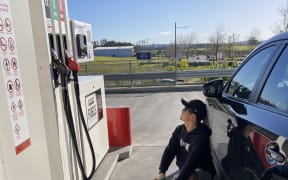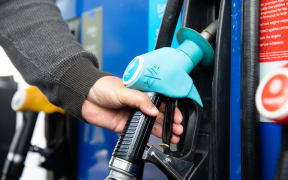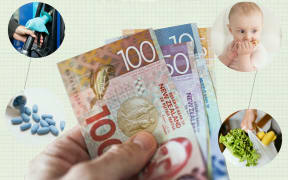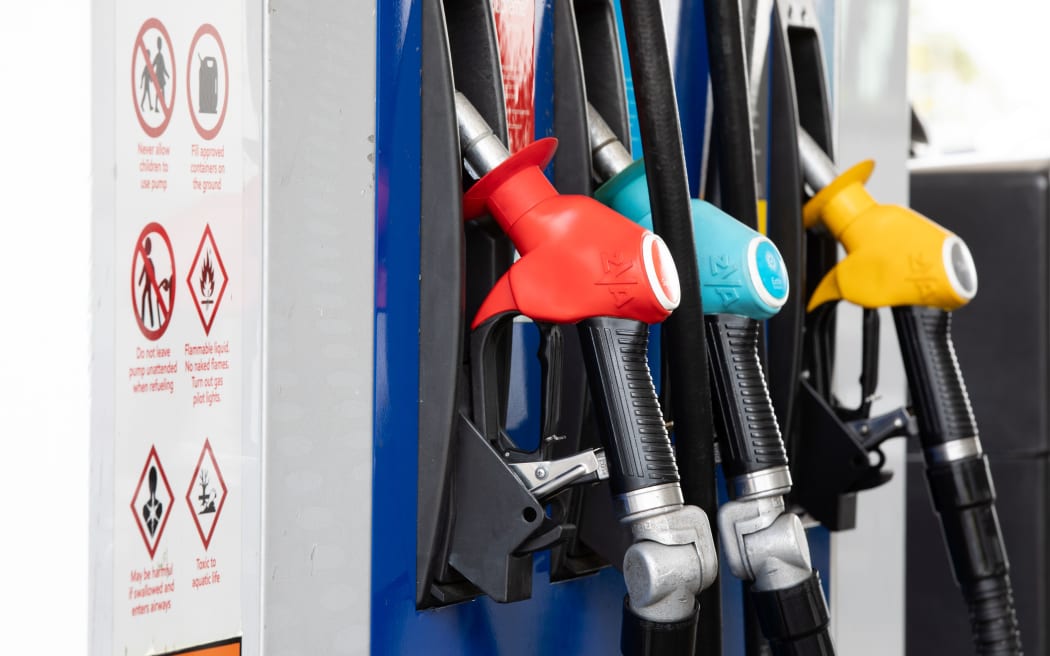
Unleaded 98 has risen 5.5 percent to just over $3 on average. Photo: RNZ / Dan Cook
Motorists can expect more pain at the pump as petrol prices once again start to trend upwards.
Price tracking website Gaspy reports the average price for unleaded 91 has gone up by 4.7 percent in the last 28 days to $2.78. Unleaded 98 was up 5.5 percent to just over $3, and diesel up 8.6 percent to $2.07.
This followed the government's fuel subsidy coming to an end in June as well as a volatile global fuel market.
Auckland resident Akshaye said he noticed the difference when he filled up these days.
"I think it's really high, you know, and with the government subsidy going away I think it is making a lot of people face hardship, with the rise of interest rates and everything, definitely adds up on the monthly expenditures."
He wanted the government to reintroduce the fuel subsidy.
"At least until interest rates come down a bit, just help out the people a bit you know, I think everybody is finding it really tough.
''At least for us we have company cars so we don't feel the pinch as much, but a lot of other people, they do."
But Prime Minister Chris Hipkins said reintroducing the fuel subsidy was not on the table right now.
''I've indicated this morning [Tuesday] that we are not intending to reintroduce that."
National has other ideas on how to provide financial relief to New Zealanders. Leader Christopher Luxon said if elected, his party would give people income tax relief to help with costs like fuel.
''That's why we say inflation adjusting tax thresholds are so important, because it means that New Zealanders get to keep their own money in their own pocket.
''It's not just petrol prices that are going through the roof at the moment, it's all so been rents, it's also been food, it's also been mortgage rates and so we want to be able to let New Zealanders keep more of the money they earn."
Luxon believed government spending was to blame for rising costs.
''We have a major challenge in this country where this government spending has actually created domestic inflation - it's not international inflation, it's domestic inflation, that's our problem.
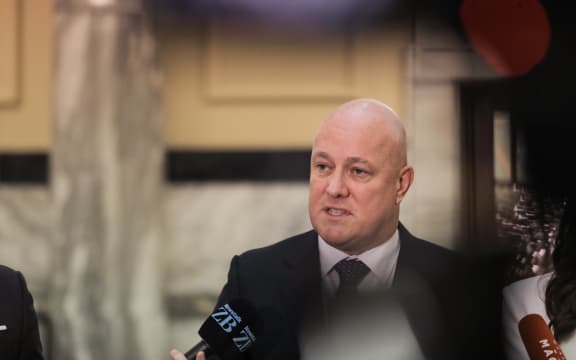
National leader Christopher Luxon. Photo: RNZ / Samuel Rillstone
"That's caused high interest rates and that's caused a recession and so, that challenge is to deal with the underlying causes of inflation again."
Automobile Association principal advisor Terry Collins said the price rise was also due to Saudi Arabia cutting oil production.
"In the last month we've gone up from having around about the mid-70s for a barrel of oil, sometimes as low as $72, now we are seeing it about $86.
''That 10 cents a barrel increase over the last month has added about 10 cents to a litre of fuel."
Collins expected the upward trend to continue in the medium-term.
''What I am assuming to see is prices going up, slowly. I think they are looking at stabilising the barrel around $90 a barrel... they are doing that by production cuts."
Gaspy data showed Gull petrol stations in Hampton Downs and Te Awamutu had the cheapest 91 in the country, sitting at $2.48 a litre.

